RIP, Mac
 By Lois Winston
By Lois Winston
Sometimes, there are no warning signs, no odd symptoms that crop up which would make us suspect something is not quite right. Such was not the case with Mac. Nothing made me question his health, nothing that would lead me to seek out the services of an expert. One moment, he was fine; the next he wasn’t. Worse yet, he failed to respond to all my efforts to make him well.
This all happened three weeks ago. Mac and I had been in a deeply committed relationship for ten years. I wasn’t ready to let him go. So I picked up the phone and scheduled an appointment for a full diagnostic workup. Surely, whatever the problem, something would make him better.
After arriving, I was asked about his prior symptoms. When I said he’d had none, the diagnostician showed surprise. She rattled off a series of the usual suspects, to which I answered in the negative for each one. She shook her head in disbelief. I suspect she thought I was too ignorant to recognize obvious signs of impending illness. I ignored her condescension. I needed her expertise to heal Mac.
When I asked what she thought might be the problem, she offered possible afflictions, some with remedies but others that were fatal. I crossed my fingers as she spent the next hour and a half performing a litany of tests to determine why Mac had suddenly become comatose.
The test results confirmed my worst fears. Mac had suffered a catastrophic failure. Both his hard drive and battery were dead.
I think the ratio of computer years to human years must be greater than that of dog years to human years. However, even if it’s the same, that would have made Mac seventy years old. Ancient as far as my millennial diagnostician was concerned, but I’m at the stage of my life where I no longer consider seventy old. Still, I suppose ten years is considered ancient for a computer, even one as stalwart as Mac had been.
Mac had served me well. During our time together, we’d written nine novels, five novellas, several short stories, one nonfiction book, and countless blog posts. We’d edited two multi-author promotional charity cookbooks and two multi-author box sets.
However, it was time to lay Mac to rest, sending him off to the big Apple in the sky. RIP, Mac. But really, after all we’ve been through together, he couldn’t have died a day earlier before the weekend state sales tax holiday ended?
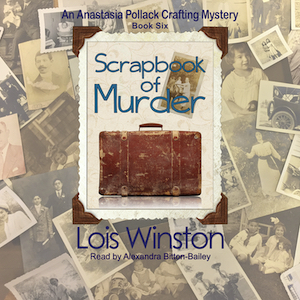 Scrapbook of Murder, the sixth book in my Anastasia Pollack Crafting Mystery Series, is now available as an audiobook. Post a comment for a chance to win a promo code for a free download.
Scrapbook of Murder, the sixth book in my Anastasia Pollack Crafting Mystery Series, is now available as an audiobook. Post a comment for a chance to win a promo code for a free download.
~*~
USA Today and Amazon bestselling and award-winning author Lois Winston writes mystery, romance, romantic suspense, chick lit, women’s fiction, children’s chapter books, and nonfiction under her own name and her Emma Carlyle pen name. Kirkus Reviews dubbed her critically acclaimed Anastasia Pollack Crafting Mystery series, “North Jersey’s more mature answer to Stephanie Plum.” In addition, Lois is a former literary agent and an award-winning craft and needlework designer who often draws much of her source material for both her characters and plots from her experiences in the crafts industry. Learn more about Lois and her books at her website www.loiswinston.com where you can also sign up for her newsletter and follow her on various social media sites.

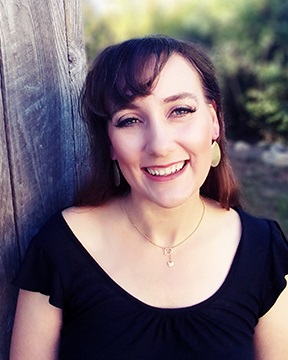
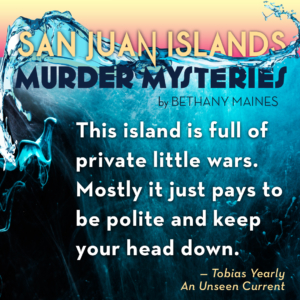 Ahhhh…. The Islands
Ahhhh…. The Islands
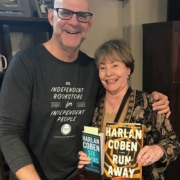
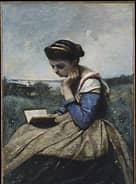
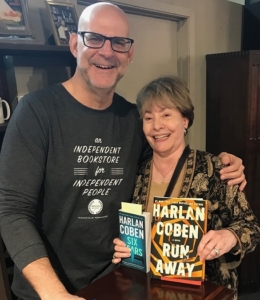

 WHERE DO IDEAS COME FROM?
WHERE DO IDEAS COME FROM?
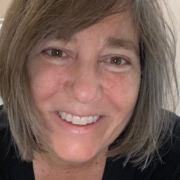

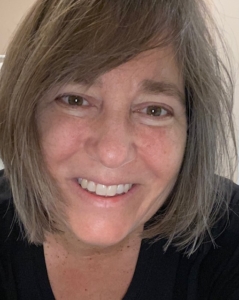

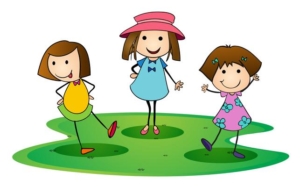
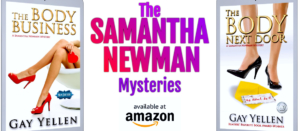


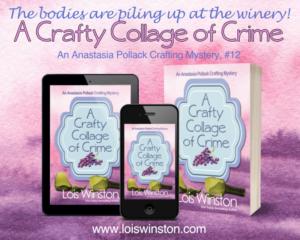 By Lois Winston
By Lois Winston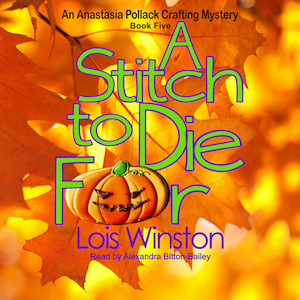 Instead, if you post a comment here, I’ll enter you in a random drawing for a chance to win a promo code for a free audiobook download of
Instead, if you post a comment here, I’ll enter you in a random drawing for a chance to win a promo code for a free audiobook download of